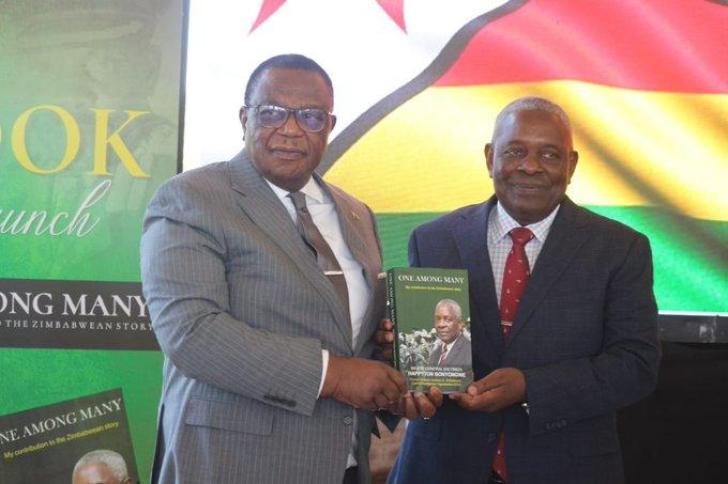News / National
Bonyongwe express irony over the death of Gen Mujuru
16 Oct 2024 at 11:09hrs |
0 Views

Former Central Intelligence Organisation (CIO) Director-General Happyton Bonyongwe has expressed irony over the death of ex-army commander General Solomon Mujuru, a key power broker in Zanu PF, who was killed in a mysterious fire at his Beatrice farm on 15 August 2011. Speaking about Mujuru's pivotal role in Zimbabwe's political landscape, Bonyongwe noted that Mujuru was “one man who tried to address the succession issue" within the ruling party, making his death all the more significant.
In his new autobiography, One Among Many: My Contribution to the Zimbabwean Story, Bonyongwe refrains from delving into the specifics of Mujuru's death, leaving the task of investigation to the police. This approach is consistent with the rest of the book, where Bonyongwe steers clear of controversial issues, unanswered questions, and key events in Zimbabwe's post-colonial history, including Mujuru's death - widely regarded as one of the most mysterious and unresolved cases in the country's recent history.
While the book offers some insight into Bonyongwe's role in Zimbabwean politics and security, critics have noted that it remains overly cautious, avoiding engagement with the more contentious aspects of his tenure and Zimbabwe's tumultuous political past. This reluctance has led some readers to describe the work as almost "sleepwalking" into an Orwellian narrative, where key events and figures are deliberately left out or obscured.
General Mujuru's death has long been the subject of speculation, with many questioning the official explanation of an accidental fire. As one of Zanu PF's key power brokers and kingmakers, Mujuru was known to have significant influence in Zimbabwe's political hierarchy, and his death came at a time of growing tensions around the issue of leadership succession in the ruling party.
Bonyongwe's reflection on Mujuru's efforts to address this succession question adds further weight to the historical importance of Mujuru's legacy. However, his decision to avoid deeper commentary on who may have been responsible for Mujuru's death leaves many of the most pressing questions unanswered.
The former intelligence chief's autobiography offers a selective look at his career, eschewing controversy in favor of a more cautious, sanitized narrative, much to the disappointment of readers seeking answers to some of Zimbabwe's most significant political mysteries.
In his new autobiography, One Among Many: My Contribution to the Zimbabwean Story, Bonyongwe refrains from delving into the specifics of Mujuru's death, leaving the task of investigation to the police. This approach is consistent with the rest of the book, where Bonyongwe steers clear of controversial issues, unanswered questions, and key events in Zimbabwe's post-colonial history, including Mujuru's death - widely regarded as one of the most mysterious and unresolved cases in the country's recent history.
While the book offers some insight into Bonyongwe's role in Zimbabwean politics and security, critics have noted that it remains overly cautious, avoiding engagement with the more contentious aspects of his tenure and Zimbabwe's tumultuous political past. This reluctance has led some readers to describe the work as almost "sleepwalking" into an Orwellian narrative, where key events and figures are deliberately left out or obscured.
General Mujuru's death has long been the subject of speculation, with many questioning the official explanation of an accidental fire. As one of Zanu PF's key power brokers and kingmakers, Mujuru was known to have significant influence in Zimbabwe's political hierarchy, and his death came at a time of growing tensions around the issue of leadership succession in the ruling party.
Bonyongwe's reflection on Mujuru's efforts to address this succession question adds further weight to the historical importance of Mujuru's legacy. However, his decision to avoid deeper commentary on who may have been responsible for Mujuru's death leaves many of the most pressing questions unanswered.
The former intelligence chief's autobiography offers a selective look at his career, eschewing controversy in favor of a more cautious, sanitized narrative, much to the disappointment of readers seeking answers to some of Zimbabwe's most significant political mysteries.
Source - online
Join the discussion
Loading comments…































